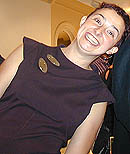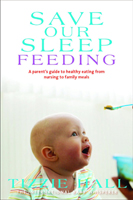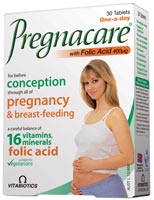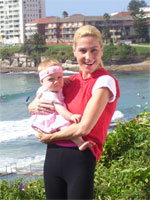Katie James World Breastfeeding Week Interview
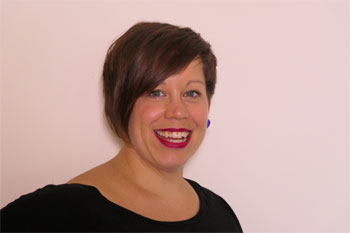
Katie James World Breastfeeding Week Interview
Medela Australia conducted a survey with 4000 Australian Mums to discover attitudes towards experience with breastfeeding and who they turn to for parenting advice. Results reveal many women put pressure on themselves to breastfeed because of health benefits breastfeeding provides, yet most go on to experience associated challenges. To assist in their parenting journey, mums seek advice from Midwife/Doctors and online support tools and apps over their own mums' wisdom.
Reassuringly, 9 in 10 mums experience breastfeeding challenges. From the respondents, 90 per cent cited issues with milk levels (22 per cent) and sore nipples (20 per cent) as the most popular problems. A myriad of less common issues included mastitis/engorgement, health, latching, sore nipples, tongue tie. Despite challenges, most mums persevere to continue breastfeeding. In fact, a high proportion (52 per cent) feel pressure to continue breastfeeding. Of these women, the overwhelming majority actually put pressure on themselves to breastfeed, as opposed to feeling the pressure to breastfeed from factors such as partners, society, media, celebrities.
The main reason women breastfeed despite setbacks, is ultimately for the health benefits for baby and mum (approximately 90 per cent breastfeed for this reason). The bonding experience, convenience, monetary savings, benefits to environment were minor reasons to breastfeed, with each option garnering under 4 per cent support. Pumping is also increasingly popular with 92 per cent expressing, mainly to store milk for future use (29 per cent), or to improve milk supply (22 per cent).
The survey further reveals that while most respondents (61 per cent) agree there is a lot of online information and advice available, mums still feel satisfied with the access to information and advice required. Only 10 per cent feel extremely overwhelmed and confused with information available online. The most popular point of call for mums looking for pregnancy, newborn and baby advice is the Mid Wife/Doctor. This is followed most closely by Online communities/ websites/ Apps/ downloadable tools. The majority of mums do not turn to their own mum for advice first, with the 24/7 convenience of sourcing information online or via Apps as the reason for its popularity.
Jarrod Percy, the Managing Director of Medela Australia explains, 'Breastfeeding Awareness Week is an opportunity to educate the wider community about the challenges mums face and the pressure they put on themselves to give their child the best start in life and to remind mums that they are not alone in their journey. Fortunately, this generation of mums have access to personalised, instantly available resources, tools and communities online designed to inform and empower her along the way."
Over 70 per cent of respondents subscribe to an online support network, website, forum or App that provides parenting information. And of these, 98 per cent find these resources important in terms of providing new mums with support and information.
Medela is proud to celebrate World Breastfeeding Week's 25th year in 2017, and share breastfeeding insights and trends this generation of Australian mums are experiencing.
Interview with Katie James
Katie is an Educator, Midwife and Lactation Consultant from Medela Australia.
Katie James has worked in the UK and Australia as a midwife, lactation consultant, educator, and as a sessional university lecturer and tutor. Katie has worked in postnatal and hospital wards, NICU and SCN, community clinics as well as privately as a lactation consultant.
Katie's role as Education Manager for Medela Australia, is to provide education and the latest evidence on breastfeeding, what's in mother's milk, and breastmilk feeding to families and health professionals.
Question: What message would you like to spread this World Breastfeeding Week?
Katie James: World Breastfeeding Week is celebrating its 25th year and this year's theme is about -working together for the common good'
We need to work together to support every mother to meet her breastfeeding goals. All new mums go through ups and downs, but every mum needs people around who help out and make them feel like they are doing a good job, especially when it comes to feeding their baby. We need to come together to keep raising awareness about how there is more support needed for breastfeeding mothers. And we need to raise awareness to government that how we feed our babies is important for the health and wellbeing of mums and babies for now and the future. Coming together with the same goal helps our mums voice be heard.
Question: What surprised you most about the Medela Australia survey of 4,000 Australian Mums?
Katie James: 9 in 10 mums experience breastfeeding challenges.
This stat demonstrates that mums are not alone in their breastfeeding challenges- experiencing struggles is actually normal and many mums will still go on to have a positive experience. This is a comforting stat for new mums.
Question: Who do Australians turn to for parenting advice?
Katie James: The most popular point of call for mums looking for pregnancy, newborn and baby advice is the Mid Wife/Doctor followed by online communities/websites/apps. The third resource mums turn to is their own mum or a friend.
Question: What is the impact of family influence on a new mother regarding breastfeeding?
Katie James: Studies have shown that the more supportive and knowledgeable about breastfeeding a partner is the more likely a mum will succeed with breastfeeding. (Rempel LA, Rempel JK 2011, The breastfeeding team: the role of involved fathers in the breastfeeding family. Journal of Human Lactation 27(2):115–121, 187–189 & Tohotoa J, Maycock B, Hauck YL, Howat P, Burns S, Binns CW 2009, Dads make a difference: an exploratory study of paternal support for breastfeeding Perth, Western Australia. International Breastfeeding Journal 4:15)
Having a supportive family or supportive group of friends is really important as a new mum. There can be many days when a new mum doubts herself or her ability to breastfeed her baby and may be feeling overwhelmed at times as she transitions into new role as a mum. This can be made much easier with good support, encouraging words to let her know she's doing an amazing job, or just a hug from someone positive and friendly.
Question: What are the common challenges new mums face when breastfeeding?
96% of mothers in Australia start breastfeeding their baby (AIHW 2010, Australian National Infant Feeding) but by 5 months only 15% are still exclusively breastfeeding, despite Australian guidelines recommending we exclusively (no other food or drink unless medically indicated) breastfeed our babies until 6 months and keep it in their diet for 12 months and beyond.
Question: Can you share your advice regarding these breastfeeding challenges?
Katie James: Starting off right is the most important way to ensure you build a good milk supply over the first month.
The 'Golden Hour" after birth is exactly the right time to hold your baby in skin to skin contact and have that first breastfeed. Skin to skin contact not only feels wonderful but boosts the hormone known as Oxytocin. Oxytocin helps you to bond with your baby and is responsible for the -let-down' of milk as it squeezes the milk out of the cells and pushes it down the ducts to the baby.
For some babies who are sleepy due to the effects of labour medicines or epidurals, and are not able to breastfeed in the first hour or days it is really important to replicate the 'Golden Hour" by continuing to hold baby in skin to skin (when possible) and expressing their milk in the first hour and around 8 times every 24 hours until their baby is able to breastfeed. Most hospitals will help mums to do this with the Medela Symphony hospital pump with Initiation technology in conjunction with teaching them to hand express.
At first your baby has a very tiny tummy and only drinks a small volume of colostrum from your breasts. The colostrum is absolutely perfect for your baby right now. Some mums may think that they do not have enough milk for their baby at the beginning because the baby appears constantly hungry, but this is not true. It is normal for baby to feed really often, i.e. every 45mins – 3 hours. Babies need to go to the breast frequently in order to initiate your milk supply and lay down the foundations to make a good milk supply for the future too.
Once your milk starts to come in the consistency of the milk changes. Mature milk has larger amounts of fat and protein and can fill baby up for longer. Babies still feed frequently though, anywhere between 8-12 times in 24 hours is normal in the first month and important to make sure baby is getting enough. Your breasts make milk based on a system known as supply and demand. The more your baby breastfeeds (demands) the more milk your breasts produce (supply).
Many mums will experience some pain in their nipples, particularly days 3-5. For some mums though this pain becomes damage and trauma to the nipple. Which understandably makes feeding incredibly difficult for some mums. Often the soreness is caused by baby not being attached correctly at the breast. Like with any new skill, it can take time to master, this is no different with breastfeeding. The important thing with any soreness is to seek help from a breastfeeding professional, like a midwife or lactation consultant who can teach you to latch your baby to your breast correctly and with no pain, they can also check for things like tongue tie or other issues which may be causing pain or damage to your nipple.
Question: Why do you believe pumping has become increasingly popular?
Katie James: Many women have to go back to work these days compared with perhaps 20-30 years ago. Many mums need to go back to work after 3-6 months. Mums who want to keep breast milk in their baby's diet will often pump at work to maintain their milk supply and then continue breastfeeding in the evenings, nights and mornings at home.
The other reason is mums are busy and active and often want the option to leave baby with someone whilst they are out at the gym or a class. Having some pumped milk in the fridge or freezer means that women can ensure their baby continues to have breastmilk in their diet even if they cannot be with their mum.
Interview by Brooke Hunter
Have You Seen This?
MORE

